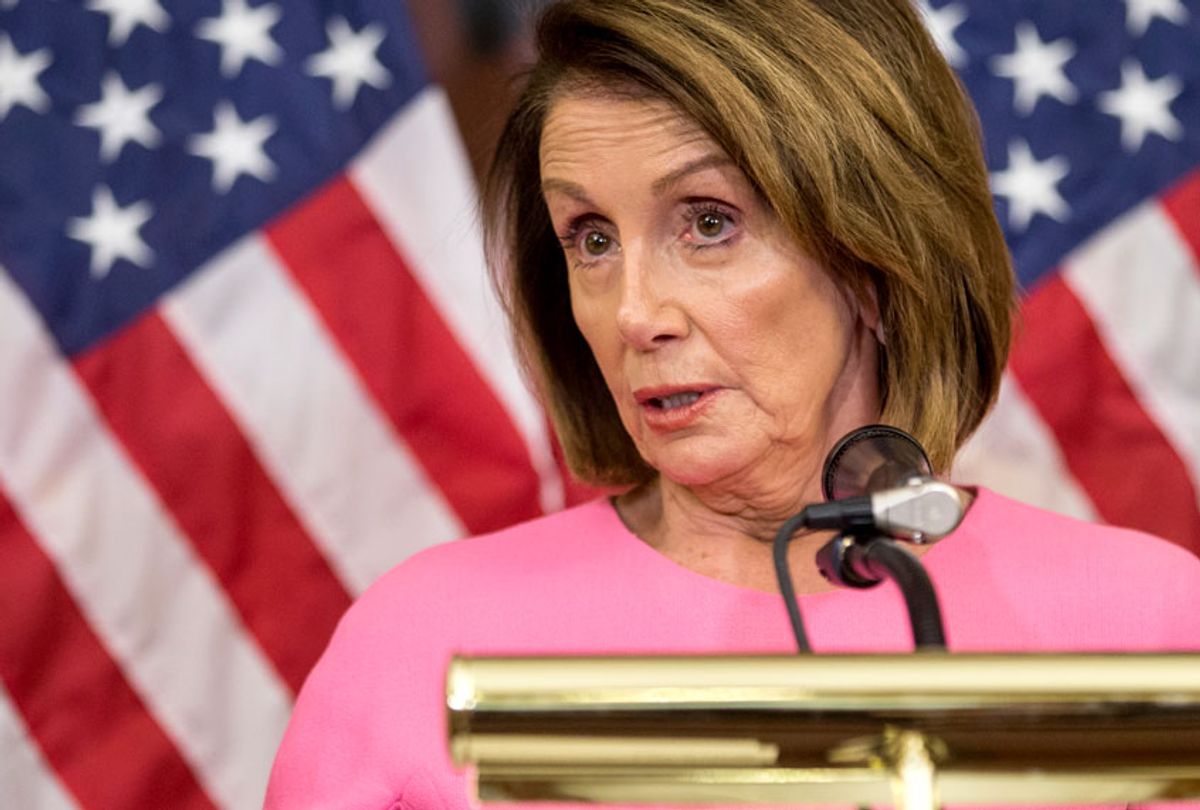Two of Nancy Pelosi’s most vocal critics decided to back her House Speaker bid after several behind-the-scenes deals, likely ensuring her a win.
Earlier this week, 16 Democratic House members signed a letter vowing to oppose Pelosi’s Speaker bid. The group of centrist Democrats led by Ohio Rep. Tim Ryan and Massachusetts Rep. Seth Moulton had long vowed to oppose Pelosi as Speaker but struggled to find a viable challenger.
One potential challenger who emerged in recent weeks was Ohio Rep. Marcia Fudge. The Congressional Black Caucus member openly considered the prospect of challenging the longtime California Congresswoman, but that all changed Tuesday when Pelosi announced she would reconstitute the House Administration Committee’s Subcommittee on Elections and appoint Fudge as its chairwoman. Republicans had eliminated the subcommittee in 2013.
“With the Committee on House Administration’s powerful jurisdiction over the Help America Vote Act, the Election Assistance Commission and the Federal Election Commission, Chairwoman Fudge will play a critical role in our Democratic Majority’s efforts to ensure access to the ballot box for all Americans,” Pelosi said in a statement.
Fudge responded by endorsing Pelosi, as well as fellow Democratic leaders Steny Hoyer of Maryland and Jim Clyburn of South Carolina.
"I now join my colleagues in support of the leadership team of Pelosi, Hoyer and Clyburn," Fudge said in a statement.
Pelosi, Fudge said, “has granted me the opportunity to create the record necessary to satisfy the 2013 Supreme Court decision in Shelby County v. Holder, so that the protections of the Voting Rights Act will be reinstated and improved.”
“She has also assured me that the most loyal voting bloc in the Democratic party, Black women, will have a seat at the decision-making table,” she added.
After Fudge endorsed Pelosi, New York Rep. Brian Higgins followed suit despite saying for months that he would not back her Speaker’s bid.
Higgins, who represents a district in Buffalo, said he will support Pelosi after she agreed to let him lead the Democratic effort to pass his legislation to allow people to buy into Medicare once they are 50 years old, he told The Buffalo News. Pelosi also agreed to advance an infrastructure bill that he supports early next year.
"I have an agreement in principle with the Democratic leader that those are going to be two priorities, and that I will be the lead person on the Medicare buy-in," Higgins told the newspaper.
Higgins’ reversal came after he called Pelosi “aloof, frenetic and misguided” because she did not support the Medicare and infrastructure plans as aggressively as he would have liked.
Higgins was among the 16 Democrats, the majority of whom have more conservative voting records and positions than Pelosi, who signed the letter vowing to oppose Pelosi.
"The bottom line is, we don't even have a semblance of a viable alternative at this point," Higgins conceded on Wednesday.
Pelosi also announced she would work to expand the Democratic Party’s leadership. Pelosi proposed adding a fourth position at the Democratic Policy and Communications Committee (DPCC), the party’s messaging arm, in an attempt to appease new members vying for more say in the party’s affairs.
“This enhancement to the DPCC will position House Democrats to best take advantage of the new size and diversity of our Caucus, bringing greater resources and staffing to this vital Committee,” Pelosi wrote in a letter to colleagues, according to The Hill.
Pelosi needs 218 votes to become Speaker. Democrats will control at least 233 seats next Congress, which means she will have the votes as long as only the 15 Democrats outside of Higgins who signed the letter oppose her.
"I think Nancy Pelosi, when the history is written, will go down as one of the most effective legislative leaders that this country's ever seen," former President Obama said on “The Axe Files” earlier this week, adding that “her skill, tenacity, toughness, vision, is remarkable. Her stamina, her ability to see around corners, her ability to stand her ground and do hard things and to suffer unpopularity to get the right thing done, I think, stands up against any person that I've observed or worked directly with in Washington during my lifetime."



Shares